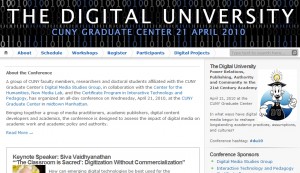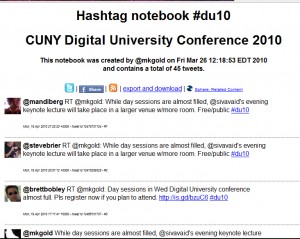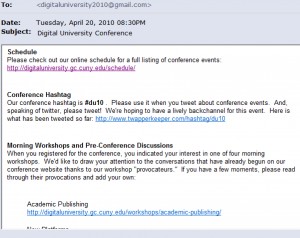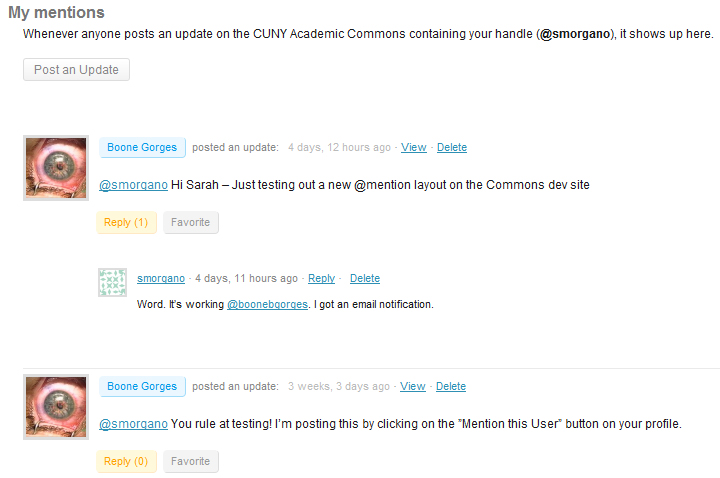I have to admit that prior to my attendance of the Digital University Conference on April 21, 2010, my understanding of “open access” was essentially non-existent. After attending the afternoon panel, A Digital Future?, my grasp of open access and academic publishing started coming into clearer focus. As someone who has not (yet) published an academic article, I had no idea about the politics of knowledge access in addition to its relation to a faculty member’s tenure track.
After searching for information about open access on the Commons, I came across Scott Voth’s (@scottvoth) Wiki Wrangler post about his creation of the new wiki page Open Access Publishing. Scott points out that, “As the cost of journals continues to skyrocket, OA needs to be on our minds.” This was certainly on the mind of Jill Cirasella (@cirasella), who created the public group: Open Access Publishing Network @ CUNY (OaPN @ CUNY) a couple of months ago after being inspired by Maura A. Smale (@msmale).
Maura was more than willing to contribute to the group she inspired Jill to create, replying to the forum topic Stephen Francoeur (@stephenfrancoeur) started: Library and info science journals that are OA. Scott used Maura’s comphrensive list of OA journals to create a new wiki page: OA Journals in Library and Information Science, which he tagged under Open Access (OA) and Library Science for easy access.
Most recently, George Otte (@gotte) posted a new blog entitled “An Immodest Proposal” where he discusses the need to create an online journal, suggesting that those who are interested post to the Open Access group’s forum thread: Starting an online journal. With 5 comments on George’s blog post and 21 posts in the forum, the conversation of open access publishing at CUNY has begun. We also learned that Steve Brier (@sbrier) has plans to start an online, open source journal to publish the works of doctoral students in the Interactive Technology and Pedagogy program. With many willing contributors and Scott Voth’s direction for logical platforms and various models, I am certainly looking forward to seeing how this new model of academic publishing unfolds at CUNY.
Want to add your thoughts to the conversation or offer assistance? Jump in here!





 I was just browsing through the
I was just browsing through the 

